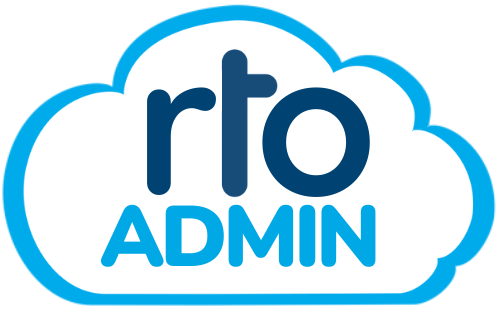Are you striving to advance your career but unsure whether to invest time and resources in accredited or non-accredited training? In the rapidly evolving job market, having the necessary skills and knowledge to excel is more crucial than ever. Training programs can offer considerable advantages by equipping you with industry-specific skills. However, not all training programs are equal, and understanding the distinction between accredited and non-accredited training is essential.
Accredited vs. Non-Accredited Training: Key Differences
The distinction between accredited and non-accredited training can significantly impact your career trajectory. Accredited training programs are officially recognized by external governing bodies, ensuring they meet specific quality standards and provide industry-relevant skills. In contrast, non-accredited courses, which lack external verification, may vary widely in quality and recognition.
What Are Accredited Training Courses?
Accredited training programs undergo rigorous evaluation by official agencies to ensure they meet predefined standards and deliver the necessary skills and knowledge for a particular profession or industry. This evaluation provides a stamp of approval which assures employers and other stakeholders of the program’s credibility and relevance.
For example, in Australia, the Australian Skills Quality Authority (ASQA) regulates these training organizations to maintain consistency and quality. Accredited courses in the country are often referred to as Nationally Recognised courses, universally accepted by Registered Training Organisations (RTOs), universities, and employers.
What Are Non-Accredited Training Courses?
Non-accredited courses are developed by organizations independently and are not subject to oversight by an external governing body. While these courses can offer valuable skills and knowledge, they may not hold the same weight with employers as accredited programs. Nonetheless, non-accredited training can play a vital role in continuous professional development, offering learning flexibility not tied to formal educational standards.
Many people enhance their skills through platforms like Udemy, Coursera, and LinkedIn, where a range of non-accredited courses is available. While not formally recognized, these courses can supplement formal education by providing specific skill sets relevant to a person’s current job or future aspirations.
Why Study Accredited Courses?
Choosing to pursue accredited courses offers a multitude of benefits, especially if you are seeking to establish a firm foundation in a regulatory-compliant industry. In sectors such as healthcare, trade, and community services, accredited courses ensure that you achieve the certified competence required to perform effectively.
Professional Credibility and Recognition
Accredited qualifications are highly regarded by employers, as they assure a certain level of competency and adherence to industry standards. In Australia, industries such as nursing, medicine, and construction often require workers to possess specific certifications to legally practice.
Government Funding and Subsidies
Accredited programs can be more expensive, but they often attract government funding and subsidies, making them accessible for eligible candidates. Both federal and state governments in Australia provide financial assistance to those pursuing certain vocational courses.
Why Study Non-Accredited Courses?
While non-accredited courses may not have the formal recognition of accredited programs, they still offer substantial advantages to individuals who are focused on continual learning and skill acquisition.
Flexibility and Skill Enhancement
Non-accredited training allows for more flexible learning schedules and is often less expensive than accredited courses. They are ideal for those looking to gain additional skills that may not necessarily be covered within formal education settings. This flexibility is particularly advantageous for professionals seeking skills enhancement without the commitment of a structured, accredited program.
Entrepreneurial Learnings
For those considering entrepreneurship, non-accredited courses can fill critical knowledge gaps in areas like business management, marketing, or finance. These targeted courses can provide the applied knowledge necessary to launch and manage a successful business venture.
Accredited Vocational Courses in Australia
Vocational education provides practical skills for specific trades or professions. In Australia, many certificate and diploma-level courses are essential for securing employment in various industries.
Examples of Key Vocational Courses
- CHC30121 Certificate III in Early Childhood Education and Care: This course is mandatory for those seeking employment as early childhood educators.
- CHC33015 Certificate III in Individual Support: This serves as a fundamental qualification for individuals entering the aged care sector.
Only Registered Training Organisations (RTOs) can offer these courses, ensuring a regulated approach to vocational education. Information about these accredited programs and the RTOs providing them can be found on public platforms like training.gov.au.
Government Support in Vocational Education
Many vocational courses in Australia come with governmental backing. Programs such as the Certificate 3 Guarantee and Higher Level Skills provide subsidies to eligible candidates, making essential training accessible to a broader audience.
Key Differences Between Accredited and Non-Accredited Qualifications
To summarize, here are the principal differences you need to consider when choosing between accredited and non-accredited courses:
| Category | Accredited Courses | Non-Accredited Courses |
|---|---|---|
| Recognition | Nationally Recognised; quality-assured | Varies; not regulated |
| Quality Assurance | Subject to standards set by regulatory bodies like ASQA | No external regulation; quality can vary |
| Career Impact | Enhances CV as it counts as a recognized qualification | Improves skills, but might not be formally recognized |
| Financial Aid | Often eligible for government funding and subsidies | Usually not subsidized, but cheaper overall |
Understanding these differences can guide your decision-making process, aligning your training choices with your career goals.
Why Consider RTO Admin for Accredited Vocational Courses?
As one of Australia’s leading providers of nationally recognized qualifications, RTO Admin has helped over 3,000 applicants achieve their career goals since 1998. Dedicated to ensuring successful graduation and employment for its students, RTO Admin offers a range of accredited certificate and diploma courses that can significantly enhance employability.
Diverse Course Offerings
RTO Admin provides a variety of vocational courses including:
- Certificate III in Individual Support (Ageing or Disability)
- Certificate IV in Ageing Support
- Certificate IV in Disability Support
- Diploma of Community Services
- Certificate III in Early Childhood Education and Care
- Diploma of Early Childhood Education and Care
Commitment to Quality Education
Dedicated to high-quality education, RTO Admin ensures that all its programs meet the stringent criteria set by the Australian Skills Quality Authority. This commitment ensures that every graduate is well-prepared for the demands of their industry.
Exploring the Right Course for You
Choosing the right course can be overwhelming. RTO Admin supports prospective students in navigating their options, ensuring they select a course that aligns with their professional aspirations and industry requirements.
Conclusion
Deciding between accredited and non-accredited training requires careful consideration of your career intentions, financial situation, and sector-specific requirements. Accredited courses are invaluable for professions with regulated entry standards and offer recognized qualifications that enhance employability. Non-accredited courses, alternatively, provide flexibility and targeted learning opportunities, beneficial for personal development and acquiring niche skills.
Whether you opt for accredited or non-accredited options, continuous learning is key to staying competitive and thriving in today’s dynamic job market. Evaluate your goals, research your options, and choose the training path that will best support your career advancement.




